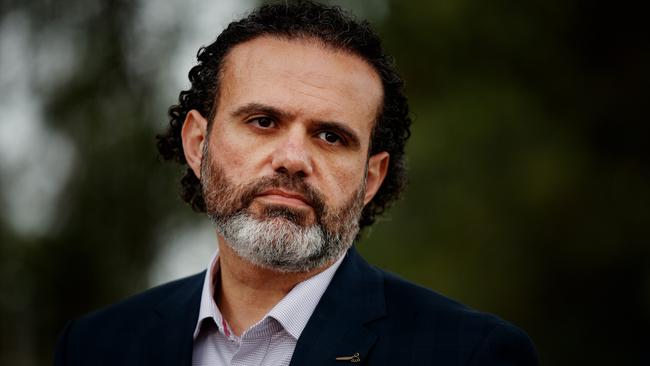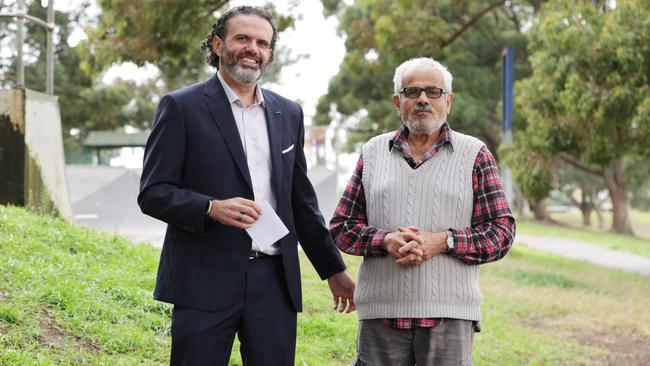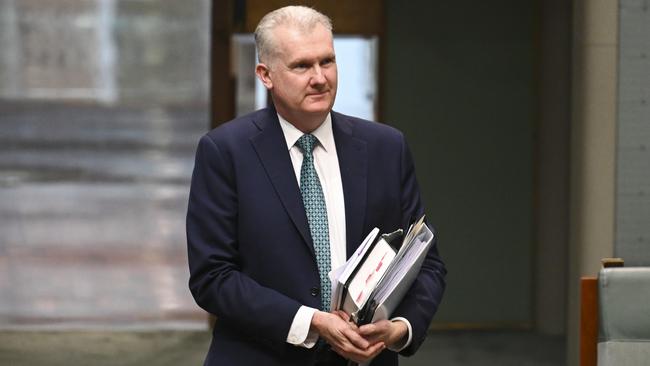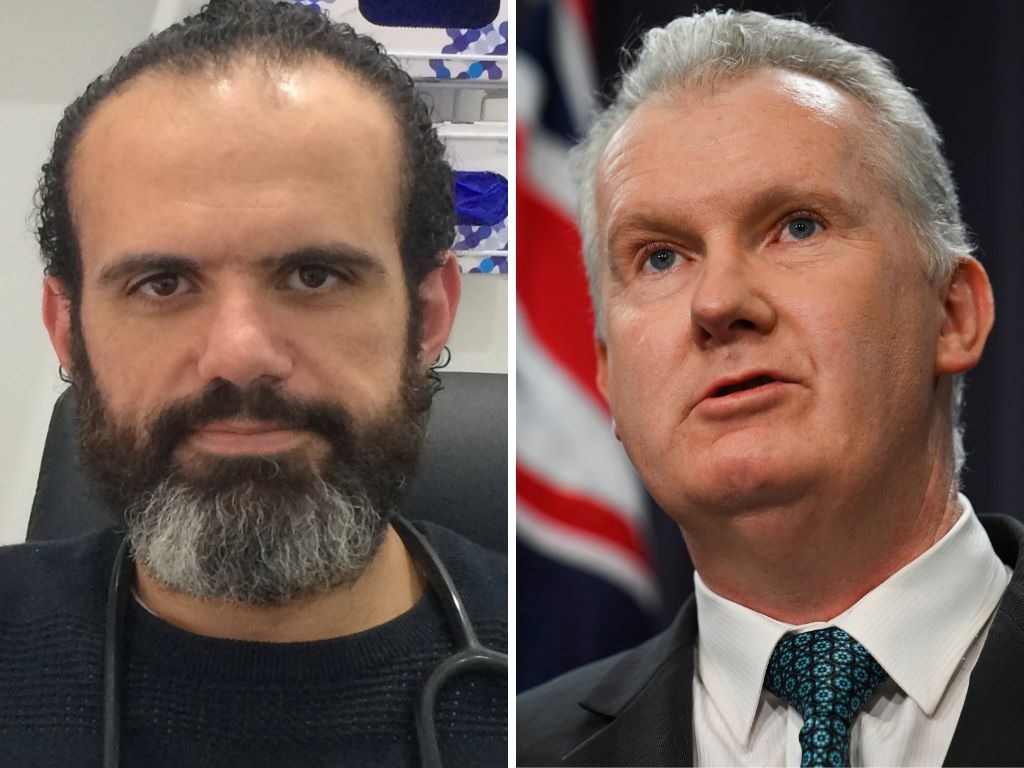‘We’re coming for you’: Burke, Labor warned as Dr Ziad Basyouny launches independent campaign
Dr Ziad Basyouny – who said cost of living and Palestine will be a focus – has launched his campaign to oust Home Affairs Minister Tony Burke in Watson.

As Ziad Basyouny launched his landmark independent campaign to take on Tony Burke at the next election, the potential scale of his task to convince the diverse Muslim community in the home affairs minister’s seat of Watson became clear.
Pictured speaking with Dr Basyouny was local resident Mohamad Allywa, who later told The Australian he backed Mr Burke and wasn’t going to vote for Dr Basyouny.
“Tony Burke is a very good member, he helps us (a lot), I love Tony,” said Mr Allywa, who migrated from Lebanon.
Mr Allywa called Dr Basyouny a “good candidate” but a “small unit” compared to Mr Burke’s “castle”, who he and others would support given his longstanding ties to the community.
“It’s very hard (for Dr Basyouny), Tony is a very good member. If he can help (me), he will. If he cannot, he says ‘sorry, Mohamad, I can’t help’.”
It comes as Dr Basyouny launched a political warning shot at Mr Burke and the ALP on Tuesday, propelled by the Muslim community’s unrest toward the government’s Gaza stance.
“We are coming for you (the ALP),” the 44-year-old said as he launched his campaign in Greenacre, in Mr Burke’s Watson electorate.

“It will happen (independents running), it’s a long-term project, but we will hold you to account. You need to listen to us, if you don’t, we will come after you.”
Dr Basyouny, the first independent from the Muslim community to run against a Labor incumbent, is originally from Cairo and a prominent local doctor, including at Bankstown hospital. He also helped lead the Western Sydney Local Health District pandemic response.
He said the government’s response to the Israel-Hamas war was the “final nail in the coffin”, but that the issue ranked “secondary” to cost of living.
“My candidacy is not a protest candidacy,” he said.
“It’s rather a response to the ongoing failures in cost of living, health, housing and infrastructure.”
He revealed that he had been in discussions for months with local organisations, including with representatives of The Muslim Vote and its high-profile convener, Sheik Wesam Charkawi, but is not affiliated with that group nor yet endorsed by it.
“I’ve had conversations with everyone about running, including Wesam,” Dr Basyouny said.
“I’ll be seeking the endorsement of everyone in Watson.”
Representatives from The Muslim Vote watched on as Dr Basyouny launched his campaign, including barrister Mahmud Hawila, who said in July he was an adviser to the movement.
It’s likely both it and the separate Muslim Votes Matter campaign will soon throw their full backing behind Dr Basyouny.
He condemned both sides of the war, including Hamas’ October 7 attacks but also Israel’s response in Gaza, and said that Palestinians who were part of the terrorist group should not be welcome in Australia.

“I fear for my kids safety like anyone in the community,” he said, adding a distinction between group members and those “sympathetic to Hamas”.
Dr Basyouny said Israel had a right to defend itself but criticised their response, pointing to the International Court of Justice’s January finding that Palestinians had “plausible rights to protection from genocide” and that, if proved, some of Israel’s alleged acts could fall under the United Nations’ Convention on Genocide.
Dr Basyouny has lived in the area for almost two decades, raising four children – one of his daughters is autistic – and said that he had been brought up on public service.
“I was born into a family of public servants … my life has been guided by those values,” he said.
Dr Basyouny said he voted for Labor and the Greens at the last federal election, but that it was too early to reveal how and who his campaign would preference.
The Australian understands that Mr Burke and neighbouring ALP MPs held a question and answer forum last week with about 50 members of the community, particularly aimed at addressing concerns of the area’s diverse Muslim population
Sentiment across the community, particularly the formal Muslim and Islamic bodies, has shifted toward a belief that it was better to safeguard relationships with longstanding members, like Mr Burke.
But Dr Basyouny, who is a Sunni Muslim, said he was unconvinced by Mr Burke’s pro-Palestine credentials or the strength of his voice within Labor.
“I won’t be shying away from talking about the infrastructure failures (in Watson) …” he said, arguing independents or minor party candidates after the next election could be kingmakers.
“The latest polling shows a (minority government) and any MP will be able to demand whatever they want from the government.”
Lebanese Muslim community leader Dr Jamal Rifi has spearheaded a counter movement that sought to re-elect Mr Burke and has criticised The Muslim Vote campaign for taking advantage of people’s emotion about Gaza.







To join the conversation, please log in. Don't have an account? Register
Join the conversation, you are commenting as Logout